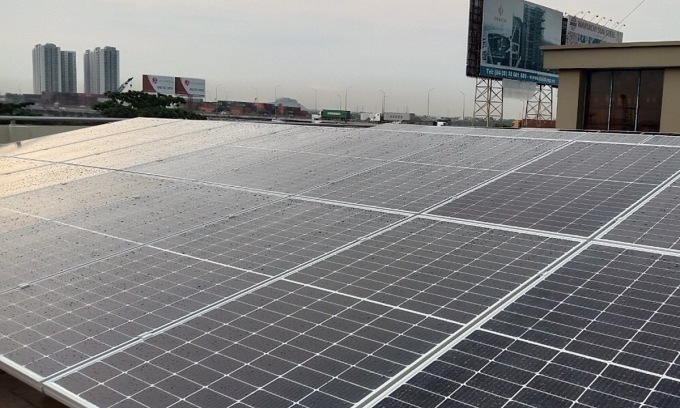Official dispatch dated September 7 of the Government Office citing information from Dr. Cao Anh Tuan, an independent expert on the electricity market, proposed that third parties would be able to rent roofs from businesses to invest in solar PV systems and then sell electricity to those businesses in the form of self-production, self-consumption.
At the same time, the expert proposed that the Ministry of Industry and Trade allow trading of self-consumption RSP within an industrial park or export processing zone.
Prime Minister Pham Minh Chinh requested the Ministry of Industry and Trade to study this proposal in the process of developing the Government's Decree on encouraging the development of RSP and report to the Government before September 10.
In the latest draft Decree on self-production RSP, the Ministry of Industry and Trade stipulates that organizations and individuals investing in RSP systems and not using up all the output will be able to sell to the grid no more than 20% of the installed capacity. However, the draft does not allow electricity trading activities between organizations and individuals.
Currently, according to the direct purchase mechanism (DPPA mechanism), RSP is allowed to be sold to large customers with an average monthly consumption of 200,000kWh or more.

Cornerview of RSP system at Dong Nai Port. Photo: Nami Solar
In fact, some businesses previously proposed leasing roofs for a third party to invest in RSP systems and then sell electricity back to the businesses.
At a workshop to collect opinions on the draft Electricity Law on August 9, Ms. Dao Thi Thu Huyen, representative of Canon Vietnam, said that investing in RSP systems requires large costs and completing complicated procedures. Therefore, not every business can do it.
This representative proposed to keep the regulations on purchasing and selling RSP with customers who are not large users. This would help businesses not have to spend large costs, and at the same time contribute to protecting the environment when using natural energy sources.
Currently, the country has more than 103,000 RSP projects, with a total installed capacity of more than 9,500MW. According to PDP8, the scale of this type of energy by 2030 will increase by 2,600 MW or reach 50% of office buildings and residential homes.
In addition to trading consideration, the Prime Minister also asked the Ministry of Industry and Trade to study and propose expanding "room" for RSP capacity. This is to meet the needs of economic development and greening of businesses. According to experts, Vietnam can learn from Germany's experience in operating the electricity market. In this country, the proportion of renewable energy is up to 55% by 2023, with a target of 80% by 2030.
Regarding "room" expansion, previously, Deputy Prime Minister Tran Hong Ha viewed that it is necessary to adjust the capacity scale in the North, possibly up to 7,000MW. This level is nearly three times the 2,600 MW development limit for the whole country. At the same time, he also stated that the mobilization ability for the Ho Chi Minh City area needs to be recalculated.